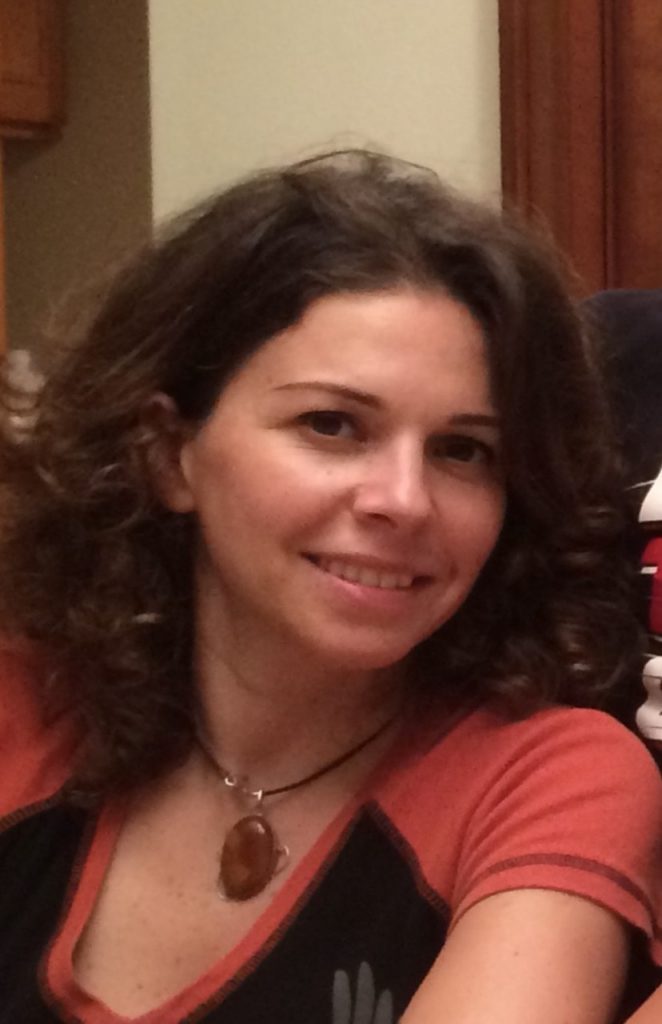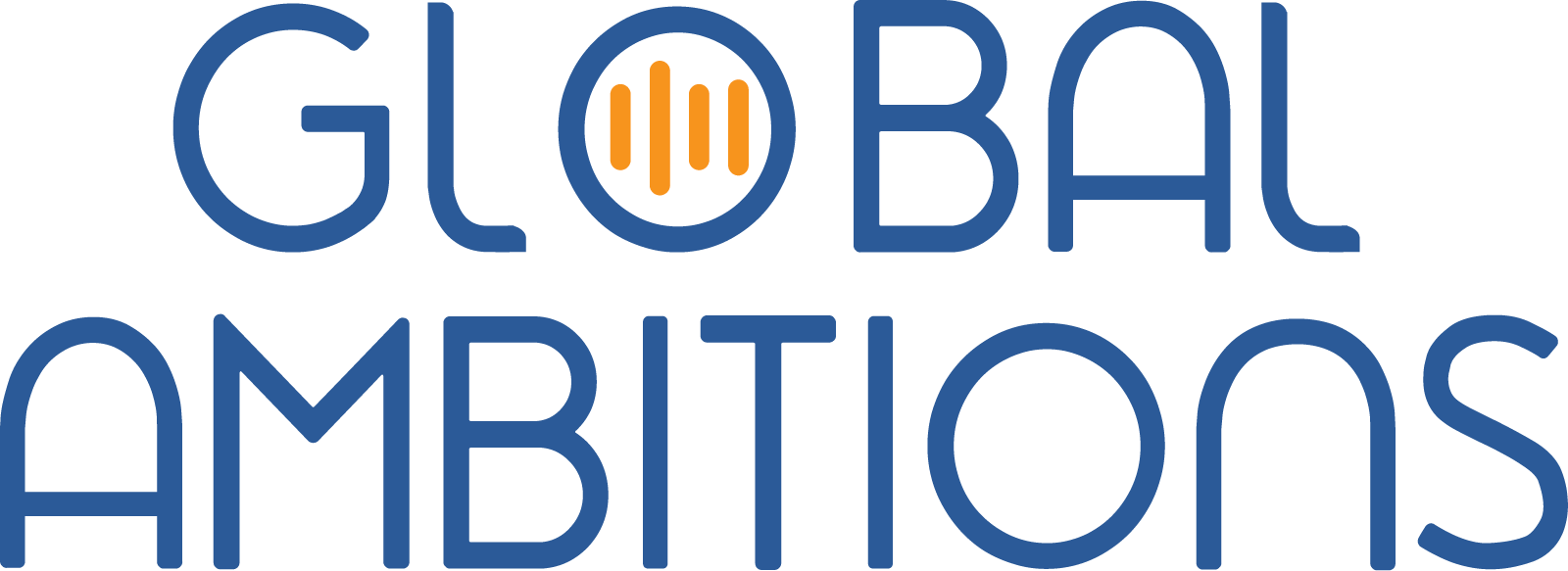With Wada’a Fahel, Senior Director, Engagement Marketing, Transcreation, and Global Ops at Zendesk
Below is a full transcript of today’s episode.
Antoine Rey
Hi, my name is Antoine Rey and I’ll be your host today for this Global Ambitions podcast episode. And today my guest is Wada’a Fahel, who is a Senior Director of Engagement Marketing, Transcreation, and Global Ops at Zendesk. Wada’a welcome to the program.
Wada’a Fahel
Hi Antoine. It’s so nice to see you.
Antoine Rey
Where does this podcast find you?
Wada’a Fahel
Well, I’m based in Wisconsin, in the beautiful Midwest right here. My team is in the Bay Area, London, and Singapore, so it’s a central location that I’m grateful for.
Antoine Rey
Well, a very global team in that case. You work for a company that was a public organization and that was acquired recently. So what I’m interested in first so that we establish that for our listeners is how strategic was localization at Zendesk? And did you have like buy in from senior management and the exec team before it went private?
Wada’a Fahel
Sure. Well, first, Antoine, I want to thank you for inviting me to your podcast. It’s super exciting. And I also want to thank you for selecting that specific topic.
You know, it brought back some good memories, having worked on both the manufacturing and tech sides of the business, I came to realize that executive sponsorship is a key priority that we tend to overlook or take for granted as leaders. And what I mean by that is that when localization leaders are pursuing a new opportunity, there’s an assumption that the executive sponsorship is part of the package that is going to be given. Otherwise, why would an organization post a leader’s role for localization or invest in it? But then we we jump ship and we face reality and we realize that there’s a lot of work to be done right? Fostering strong relationships, earning budget, and so forth and so on. And it becomes a distraction from your strategic operations and goals.
So I learned this lesson the hard way at the beginning of my career, but not with Zendesk. We’ve been blessed with executive sponsorship at Zendesk since day one. In fact, it was a key question at the interview level. I had the opportunity to interview with three top executives at Zendesk for this role. Great leaders. I still work with them today. And my question was, does globalization, localization, and transcreation have executive sponsorship at Zendesk? Their answer was going to determine my career move, and sure enough, it was a collective and consistent yes across all three leaders. So we checked that box and sure enough, we earned the executive sponsorship and budget. It enabled us to strengthen the foundation, overhaul tools and processes, build a robust global vendor network, and most importantly, get the right people on the bus and in the right seats on the bus. So grateful for that.
Now, I want to be mindful and I don’t want to give the impression that without executive sponsorship, you’re going to fail as a leader, but it is going to take you longer to achieve your strategic and operation goals without executive sponsorship, especially when you’re on the buyer side of the business. It’s a fast-paced environment. Results are expected to be achieved fast, so it will just take you longer. So my recommendation for any localization professional or leader pursuing a new opportunities, if they haven’t figured it out yet, is to ask the question at the interview level “Does localization globalization have executive sponsorship?” And if the answer is yes, great. You’re in good hands. If not, at least you’ve planted the seed and you’ve triggered some thoughts.
Antoine Rey
Yeah, because that can take years from what I’ve seen with other organizations to actually get executive on boards.
Wada’a Fahel
Yeah. And it was, you know what we’ve been through back then at Zendesk. It was a public organization when we started overhauling the foundation. And it was difficult the way it is with executive sponsorship. So go figure how hard the path might be without it. Right?
Antoine Rey
And your localization team has two branches? You’ve got the product localization team and you’re looking at the marketing localization team yourself, right?
Wada’a Fahel
Yeah. So the the way globalization is structured around Zendesk is in two different capabilities swimlanes, if you will. We have product localization and I’m responsible for Transcreation and Global Ops, which is marketing and pretty much everything that is not product related. So legal, corp., coms, h.r. And any ad hoc activities around the globe.
Antoine Rey
Okay. So you mentioned that you’re a public company. Since then things have changed a little bit because you’ve gone to the private sector and with investors and presumably, you know those investors want to scale up. So I’m wondering whether things have changed. We know there’s been some changes at the executive level and if your sponsorship has changed again there, and if you had to go back to square one with them?
Wada’a Fahel
Sure, sure. No, you know, public or private, merger or acquisition, growth is a priority for any organization. So I would not say that by moving from public to private, Zendesk is faced with only unrealistic growth expectations or that the new leadership wants to pull back from some markets. The acquisition is still in its infancy. We were acquired back in Q4 2022. This is when it was made public. And as you know, it takes about a year to understand the lay of the land and the trajectory. But what I could share and what I’ve observed in the past few months is that there’s less focus on Wall Street and the stock market , which I truly appreciate. You know, by moving to private, you don’t have to worry about this anymore.
And there’s more focus on organizational structure and most importantly, the customers. Being customer obsessed in a good way is energizing. We understand the road ahead, the expectations, the outlook for the next few years is very clear. Communication and transparency both have been great, and that environment raises the level of employee engagement. And when you have engaged employees , you know you unlock their potential. They have skin in the game. So growth becomes inevitable not just at the revenue level, but at all fronts.
So the new owners are certainly expecting Zendesk to perform and they have goals to meet and they have metrics to achieve. But it’s all part of the a robust strategy that was shared with us and our team and transcreation and global offices equipped and ready to support. So we’re excited about that journey.
Antoine Rey
Great. And have you had a chance to already meet and talk with the exec team there about your vision and the company vision for localization and international expansion?
Wada’a Fahel
Oh yeah. It’s actually a funny story how I first met our current CEO, Tom. One of the great things about Zendesk is community work. They invest a great deal of budget and time on social impact activities, and whenever I get a chance, I carve out some time to participate in those impact activities and encourage my team members to do the same.
I think it was back in October or November of last year, the new owners organized a social impact activity in the Bay Area. They were gracious enough, you know, to get the team together and we were standing in an assembly line packing hygiene kits, and one of the new owners was standing right next to me. Back then, we did not know who was going to be, CEO. A sharp, articulate leader called Tom. And he was genuinely interested in understanding our area and what we did and Transcreation and global ops and I went on and on. You know, it was a casual conversation. Then the assembly line was done. And, you know, he thanked me and said, I want to stay connected. I want to learn more about your area. And I said, yes, absolutely. And then two weeks later, the same. Tom is our new CEO.
Antoine Rey
Wow.
Wada’a Fahel
So I sent a note congratulating him about the new role. He responded immediately, remembered our conversation and scheduled some time to discuss and deep dive. I was blown away. Wow. A leader, a new owner who has a big fish to fry is not afraid of getting in the weeds and focusing on global capabilities like ours. So I would say by moving to private , we’re in great hands.
There’s attention to global, there’s attention to capabilities like ours and what we’re excited about the future. That’s great. There’s clearly an ambition and a drive to have internationalization as one of their key objectives and the growth of international market as a key objective for the next few years, which is a coveted situation to be in.
Antoine Rey
And I know a lot of our listeners want to get that key objective on the leader board somewhere, you know, and that can take years. So in your case, you’re somewhat probably even with the new owners already in the right place, with the executive and with your sphere of influence within the organization there, how do you kind of use it carefully and to achieve what somehow?
Wada’a Fahel
Mhm. Mhm. Great question. I think, you know, I think this sphere of influence is tied directly to the topic of executive sponsorship that we spoke about earlier. Now, now we have to be mindful that executive sponsorship is a privilege with a great responsibility and it’s bound to a deadline. It’s not open ended or timeless. Once the leadership entrusts you with budget and resources, the clock starts ticking and you have to deliver and achieve. In the buyer environment, the results are expected to be achieved quickly.
So my philosophy is to start with small wins and build upon them to expand and solidify the sphere of influence. Consistent small wins lead to a long term compounding effect. Rather than having, you know, success stories with big splashes and then you lose momentum after that. What I’ve done throughout my career is to use success stories to solidify and expand the sphere of influence. When you create this environment, it becomes a habit. Your team members operate with certain micro habits in terms of consistency, accountability, and delivery. You foster strong relationships. You build confidence and rapport. You have a strong and robust track record that will help you navigate change management, navigate shifting business needs, and also people will trust you. Stakeholders will trust you. When the going gets tough in business. They will trust the process and we know that it will go bad at some point.
So again, when you have a strong and robust track record, you are in a way feeding into the sphere of influence. Now, again, yeah, in a nutshell, I think that the sphere of influence has to start with executive sponsorship, but is highly dependent on your consistent and robust track record of small wins. And those small wins, you track them like through some sort of data.
Antoine Rey
And do you have like KPIs that you can use like to prove what you’re succeeding with?
Wada’a Fahel
I’m a metric person, right? So everything has to be measured and we’re very big on KPIs. And in fact, we acquired the tool as when I joined the organization and we earned budget, we had a budget specific for tools because we wanted to acquire a tool and customize it to the best of our ability to be able to track language quality metrics related to how are we contributing to SEO, how are we contributing to the cost of customer acquisition and so forth and so on. So there are metrics specific to localization and transcreation and global ops that the industry is very strong in. But there are other metrics that you have to be mindful of and those metrics you have to spend some time and invest some budget and money on customizing them and continue to communicate them.
And it’s all in the narrative. Antoine If you’re going to use some localization and transcreation jargon and share the data around the organization, you will lose momentum. You have to understand your audience and speak their language and adapt your KPIs to meet their needs and get their attention. So I would say the first 12 months on the job, it was a lot of deep diving, understanding the lay of the land and understanding our stakeholders and audience and then customizing to their needs.
Antoine Rey
And like a lot of the people that I talk to find it difficult to get certain metrics, like you’re talking about customer acquisition or presume as well like monthly active users or daily active users. For instance, did you get some like in your team or maybe in an external team, some data analysts to help you with reports and data that you needed for those?
Wada’a Fahel
We did our research, our external research, because we wanted to understand our friends and foes, if you will. And we have a robust team of data and marketing and also you have to look outside of marketing. So I developed relationships with GTM, with the data analytics team, with the teams and with the web team. And it’s all about explaining your needs and why you need certain reports and data and how it would benefit them as much as it would benefit us. It’s a building block, right?
So it’s not one report that’s going to make it or break it for you. You could have a massive report with amazing data, but what will you do with it? It’s a lot of work filtering information out and building a relevant report that helps you understand your performance and the performance of content around you and the performance of language around you.
Yeah, and I think that goes back to what we were talking about earlier on the sphere of influence that you’re building in your case with SEO Web, you know, so that you can show them how you’re contributing to their own OKRs, I guess, you know, within their organization and therefore building further trust and involvement and budgets like, you know, for you going forward.
Antoine Rey
Great. Listen, it’s been fantastic to speak with you today on this and to get that view from the pre and post-acquisition at Zendesk and to see that there is very much a strong drive towards the international growth of the organization. And It will be inspiring for a lot of our listeners. So thanks for your participation.
Wada’a Fahel
Yeah, it’s my pleasure. Always good to see you, Antoine.

Wada’a Fahel
Senior Director, Engagement Marketing, Transcreation, and Global Ops at Zendesk




